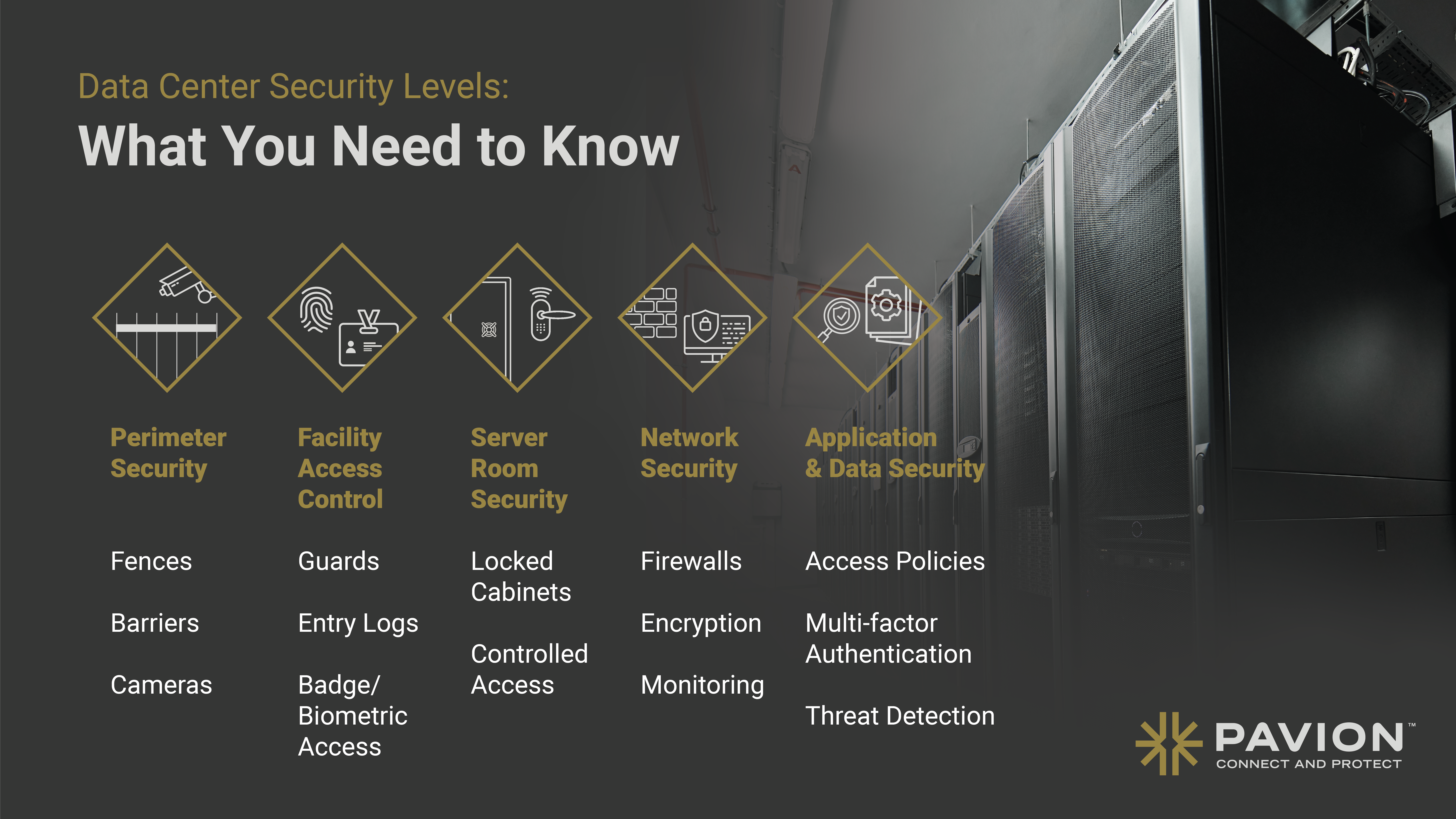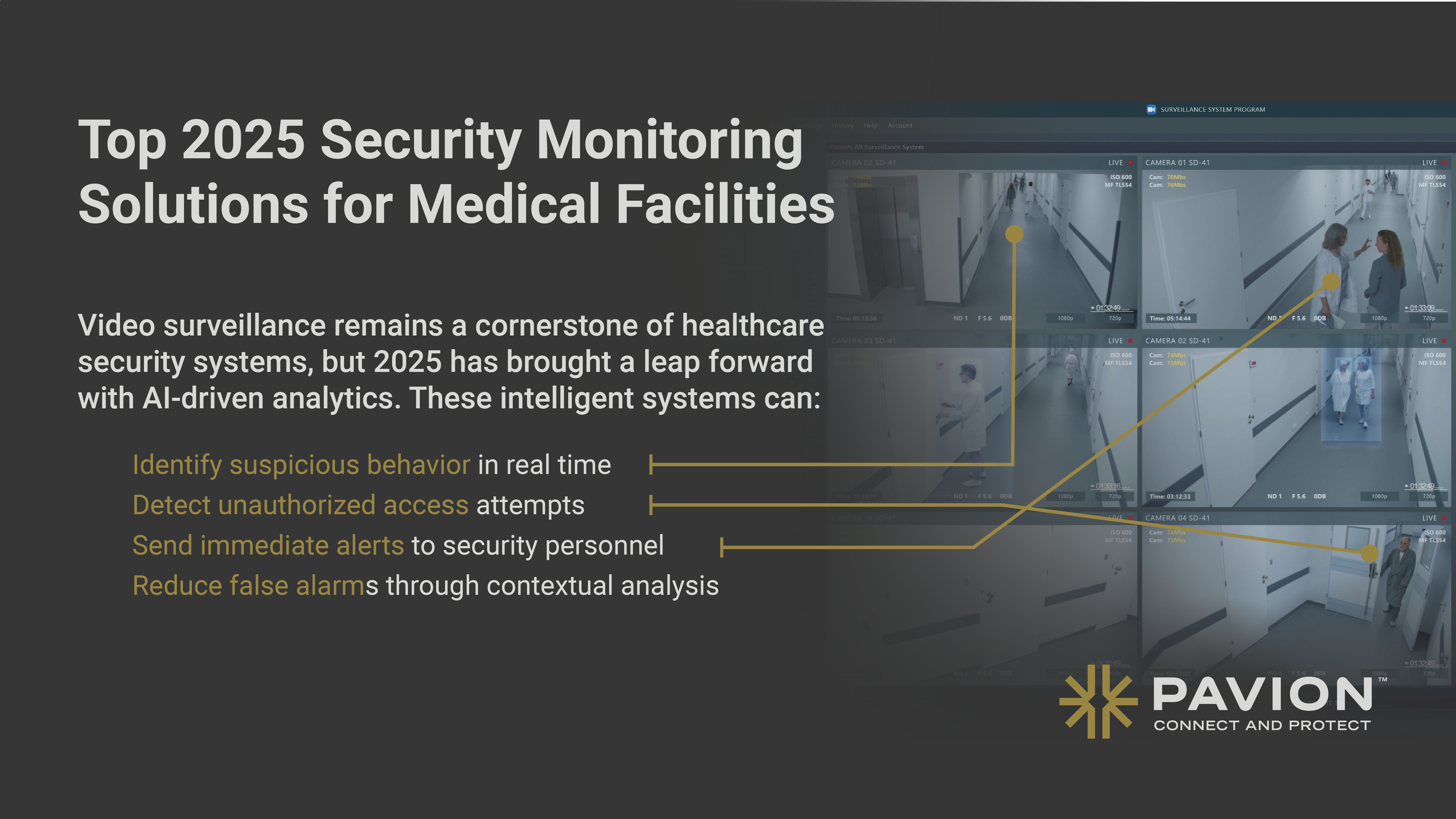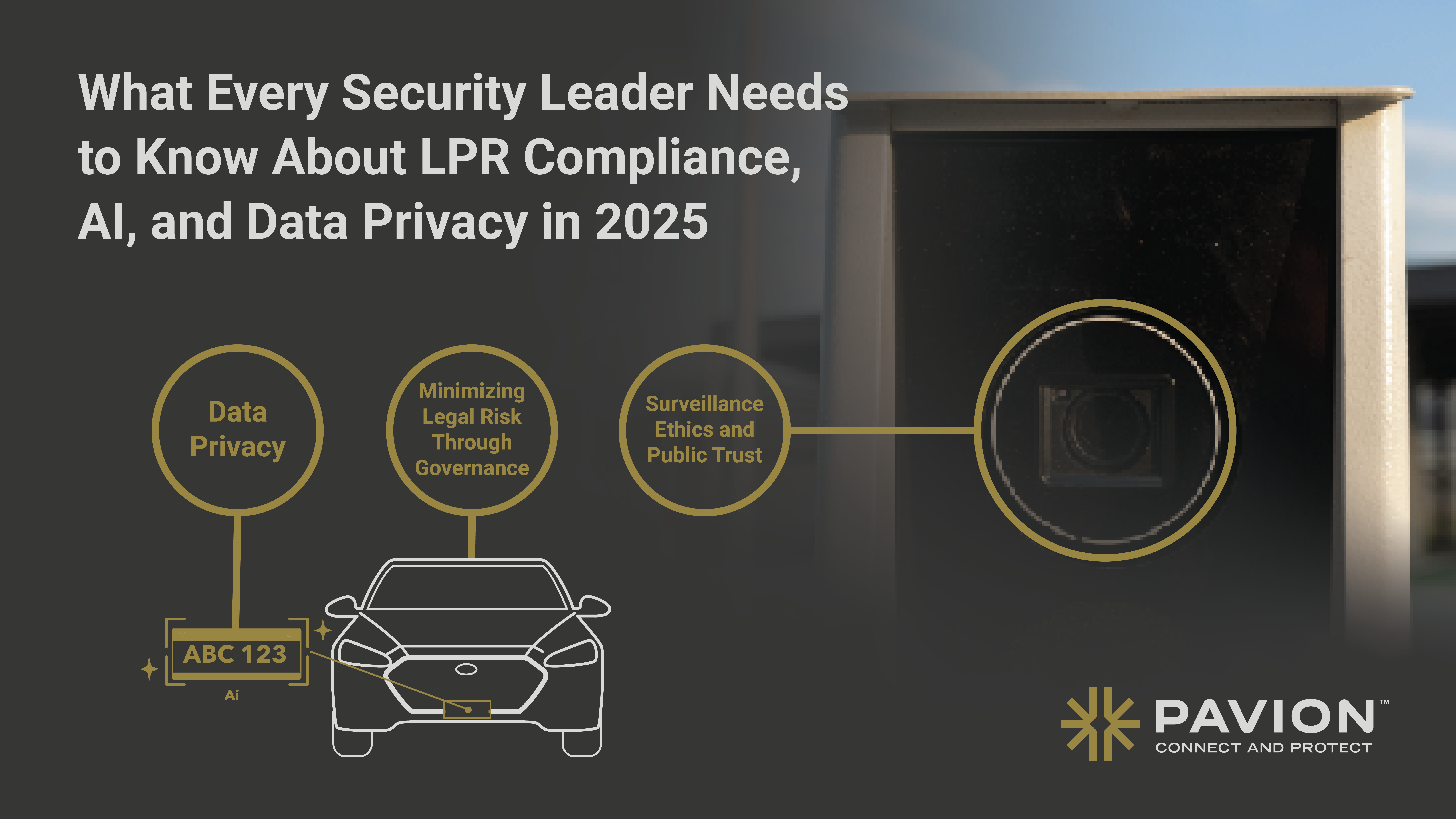
Security Systems and Data Protection for Businesses
Pavion specializes in providing comprehensive security systems and data protection solutions for businesses. In today’s technology-driven world, ensuring the security of business assets and protecting sensitive data have become critical priorities for organizations across all industries. This article explores the importance of security systems in business operations, the different types of security systems available, the intersection of security systems and data protection, implementing effective security systems, and data protection strategies for businesses.
Understanding the Importance of Security Systems in Business
In an increasingly connected and digitized world, businesses face numerous security threats, both physical and digital. Companies invest significant resources in acquiring and safeguarding their assets, making the role of security systems indispensable. Security systems not only protect physical premises but also ensure the safety of employees, customers, and valuable resources.
With the rise of technology and the internet, businesses have become more vulnerable to security breaches. Hackers and cybercriminals are constantly finding new ways to exploit weaknesses in a company’s network and gain unauthorized access to sensitive information. This has led to a growing need for robust security systems that can effectively protect businesses from these threats.
One of the key roles of security systems is to safeguard business assets. From warehouses to office spaces, security systems play a crucial role in protecting valuable resources. Surveillance cameras, alarm systems, and access control mechanisms help deter unauthorized entry and mitigate the risk of theft or vandalism. These systems provide businesses with a sense of security, knowing that their assets are being monitored and protected.
The Role of Security Systems in Safeguarding Business Assets
Surveillance cameras are an essential component of security systems. They allow businesses to monitor activities in real-time and capture evidence in case of any security incidents. By strategically placing cameras in key areas, businesses can effectively deter potential criminals and provide valuable evidence to law enforcement if needed.
Alarm systems are another crucial aspect of security systems. They are designed to detect unauthorized entry or any suspicious activity and immediately alert the relevant authorities. This quick response helps minimize the potential damage caused by security breaches and increases the chances of apprehending the perpetrators.
Access control mechanisms, such as key cards or biometric systems, ensure that only authorized individuals can enter specific areas of a business. This helps prevent unauthorized access to sensitive areas, such as server rooms or executive offices, where valuable information or assets may be stored.
Evaluating the Risk Factors in Business Operations
Identifying and evaluating risk factors associated with business operations is a vital step in implementing effective security systems. By conducting thorough risk assessments, businesses can understand vulnerabilities and develop proactive security measures.
Physical vulnerabilities are one aspect that businesses need to consider. Weak access points, such as doors or windows that are easily compromised, can pose a significant risk. By identifying these vulnerabilities, businesses can reinforce these areas with stronger locks, security bars, or even invest in shatterproof glass to deter potential intruders.
However, it’s not just physical vulnerabilities that businesses need to be concerned about. The digital landscape presents its own set of risks. Cyberattacks and data breaches have become increasingly common, with hackers targeting businesses of all sizes. Implementing robust cybersecurity measures, such as firewalls, encryption, and regular software updates, is crucial in protecting sensitive data and preventing unauthorized access to a company’s network.
Furthermore, employee awareness and training are essential in maintaining a secure business environment. Educating employees about best practices for password management, recognizing phishing attempts, and being vigilant about suspicious emails or links can significantly reduce the risk of a security breach.
In conclusion, security systems play a vital role in safeguarding business assets and protecting against various security threats. By investing in comprehensive security measures, businesses can ensure the safety of their physical premises, employees, customers, and valuable resources. Regular risk assessments and proactive security measures are necessary to stay one step ahead of potential security breaches and maintain a secure business environment.
Different Types of Security Systems for Businesses
When it comes to security systems, businesses have a wide range of options to choose from. The choice depends on the specific security needs and requirements of the organization. Let’s explore two primary types of security systems: physical security systems and digital security systems.
Physical Security Systems and Their Benefits
Physical security systems encompass a variety of tools and technologies designed to protect physical premises. These may include surveillance cameras, burglar alarms, access control systems, and perimeter fencing. By implementing physical security systems, businesses not only prevent unauthorized access but also create a safer environment for employees and visitors.
Surveillance cameras are an integral part of physical security systems. They provide constant monitoring and recording of activities within and around the premises. This not only helps in deterring potential criminals but also provides valuable evidence in case of any security incidents. Additionally, surveillance cameras can be equipped with advanced features such as facial recognition technology, which further enhances their effectiveness.
Burglar alarms are another crucial component of physical security systems. These alarms are designed to detect unauthorized entry and alert the relevant authorities. They can be set up to trigger loud sirens, strobe lights, or even send notifications to security personnel. By installing burglar alarms, businesses can significantly reduce the risk of theft and vandalism.
Access control systems play a vital role in regulating entry and exit points within a business premises. These systems can include key cards, biometric scanners, or even facial recognition technology. By implementing access control systems, businesses can ensure that only authorized individuals have access to specific areas, such as server rooms or restricted areas, thereby minimizing the risk of unauthorized access and potential data breaches.
Perimeter fencing is an essential physical security measure that helps in creating a secure boundary around the premises. It acts as a deterrent to unauthorized individuals and provides an additional layer of protection. Perimeter fencing can be reinforced with features such as barbed wire, electric fencing, or even motion sensors, further enhancing its effectiveness.
Digital Security Systems and Their Advantages
In today’s digital age, digital security systems are just as essential as their physical counterparts. These systems focus on protecting data, networks, and information systems from unauthorized access and cyber threats. Digital security measures include firewalls, antivirus software, encryption mechanisms, and intrusion detection systems. By implementing robust digital security systems, businesses can enhance the protection of sensitive data and prevent cybercriminal activities.
Firewalls are a fundamental component of digital security systems. They act as a barrier between internal networks and external networks, monitoring and filtering incoming and outgoing network traffic. Firewalls help in preventing unauthorized access, blocking malicious content, and detecting potential threats. They can be configured to allow or deny specific types of traffic based on predefined rules, ensuring the security and integrity of the network.
Antivirus software is another critical aspect of digital security systems. It helps in detecting, preventing, and removing malicious software, such as viruses, worms, and Trojans, from computer systems. Antivirus software scans files and programs for known patterns of malicious code, ensuring that the system remains protected from potential threats. Regular updates and scans are essential to keep the antivirus software effective against the ever-evolving landscape of cyber threats.
Encryption mechanisms are vital for protecting sensitive data during transmission and storage. Encryption converts data into an unreadable format, which can only be deciphered with the appropriate decryption key. This ensures that even if the data is intercepted, it remains secure and confidential. Encryption is commonly used in various communication protocols, such as Secure Socket Layer (SSL) and Transport Layer Security (TLS), to provide secure communication over the internet.
Intrusion detection systems (IDS) are designed to monitor network traffic and detect any suspicious or malicious activities. IDS can be either host-based or network-based. Host-based IDS monitors activities on individual computers or servers, while network-based IDS monitors network traffic for signs of unauthorized access or potential attacks. When an IDS detects an anomaly, it can trigger alerts or take preventive actions to mitigate the potential threat.
In conclusion, both physical security systems and digital security systems are crucial for businesses to protect their assets, employees, and sensitive information. By implementing a comprehensive security strategy that combines both types of systems, businesses can minimize security risks and create a secure environment for their operations.
The Intersection of Security Systems and Data Protection
Security systems and data protection are inseparable, as they both contribute to the overall security posture of a business. Data protection involves safeguarding sensitive information, such as customer data, trade secrets, and financial records, from unauthorized access, loss, or theft. Security systems, both physical and digital, play a crucial role in enhancing data protection measures.
How Security Systems Enhance Data Protection
Security systems provide an additional layer of protection for data by monitoring access points and detecting any suspicious activities. For example, surveillance cameras can deter potential intruders, while access control systems restrict unauthorized individuals from accessing sensitive areas. Digital security systems, such as encryption mechanisms and intrusion detection systems, help in safeguarding digital data and preventing unauthorized access.
The Impact of Data Breaches on Businesses
Data breaches can have severe consequences for businesses, including financial losses, damage to reputation, and legal implications. As more data is stored electronically and accessed remotely, the risk of data breaches increases. Therefore, businesses must prioritize the implementation of robust security systems and data protection measures to mitigate the potential impact of data breaches.
Implementing Effective Security Systems
Implementing an effective security system requires careful planning, evaluation, and selection of appropriate solutions. Here are some steps businesses can take to choose the right security system for their needs:
- Conduct a thorough assessment of security needs and risk factors.
- Identify the specific security features and functionalities required.
- Consider scalability and future expansion of the security system.
- Research and evaluate different security system providers and technologies.
- Consult with industry experts or security consultants, if necessary.
- Implement the chosen security system and regularly review its effectiveness.
Best Practices for Security System Implementation
Implementing security systems requires adherence to best practices to ensure optimal effectiveness. Some key best practices include:
- Regularly updating security systems with the latest software patches.
- Conducting employee training on security protocols and awareness.
- Maintaining a centralized security management system for easy monitoring and control.
- Performing routine audits and vulnerability assessments.
- Establishing incident response and disaster recovery plans.
Data Protection Strategies for Businesses
Data protection is critical for businesses to maintain customer trust and comply with regulations. Here are some key strategies for effective data protection:
Understanding Data Protection Laws and Regulations
Businesses must have a clear understanding of data protection laws and regulations applicable to their industry and geographic location. Compliance with regulations, such as the General Data Protection Regulation (GDPR) or the California Consumer Privacy Act (CCPA), is essential to avoid legal penalties and reputational damage.
The Role of Encryption in Data Protection
Encryption is a fundamental component of data protection. By encrypting sensitive data before storage or transmission, businesses can ensure that even if unauthorized access occurs, the data remains indecipherable. Implementing encryption mechanisms across networks, databases, and storage devices is crucial for protecting sensitive information from potential threats.
As businesses continue to face a growing number of security challenges, it is essential to prioritize security systems and data protection. With Pavion’s expertise in security systems and data protection, businesses can create a secure environment, safeguard valuable assets, and protect sensitive data from potential threats. Implementing robust security measures not only mitigates risks but also instills confidence among employees, customers, and partners, ultimately contributing to the overall success of the business.
Secure Your Business with Pavion
Don’t leave your business’s security and data protection to chance. Pavion is your trusted partner in connecting and protecting your operations with tailored fire, security, and integration solutions. Whether you’re in enterprise, healthcare, education, government, data centers, or retail, our mission is to transform your safety, security, and communication with cutting-edge technology and unparalleled service. Take the first step towards a more secure future and Get a Free System Assessment today. Let Pavion help you safeguard your most valuable assets.


